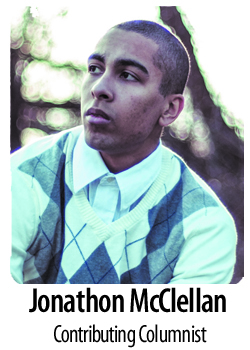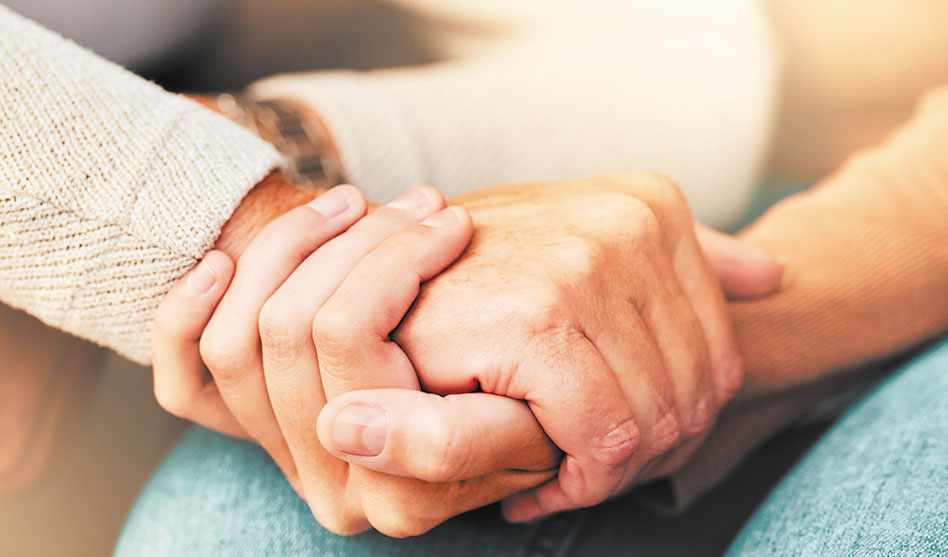Extending a hand to someone in need is not as brave as accepting that hand
 Some stories demand to be voiced. These are the situations that capture the thoughts, feelings and spirit of a generation. LGBTQ youth are more vulnerable now to the many dangers of homelessness than at any other time. And Jessica’s story, unfortunately, is not nearly as rare as the bravery I witnessed from her.
Some stories demand to be voiced. These are the situations that capture the thoughts, feelings and spirit of a generation. LGBTQ youth are more vulnerable now to the many dangers of homelessness than at any other time. And Jessica’s story, unfortunately, is not nearly as rare as the bravery I witnessed from her.
I met Jessica at the Dallas Fair Park train station when, in 2015, I used to take it to Lake June. From there, I would walk to the library, turn on Checota Drive and walk the short block to my mother’s house.
But this day, before I could board the train, I saw Jessica, a homeless woman of unknown age wandering around the train station.
Or rather, I saw her condition first.
I’m sure that what I saw, at the time, was the same thing everyone saw — not her, just the appearance of leprosy.
Before that moment, I had only read about leprosy in the Bible. So I can’t be sure that that was an accurate diagnosis. But Jessica’s legs, arms, face — perhaps her whole body — were covered in open sores.
I would have said that she was in her 20s, but living on the streets for long periods of time has a tendency of aging you prematurely. Jessica could very well have been only 15.
There was a time, and just a few years earlier, that I was homeless in New York. And I remembered that, then, the subways were one of the safest places to sleep.
That summer day in Dallas, I was carrying a monthly Metro pass — a yellow card with a large, black stripe at the bottom. It wasn’t my only way to get home, and I figured that maybe I could help her get to where she was going, or at least help her find a little refuge. So I offered her the card. That started our conversation.
I learned that when she was just a child, Jessica had endured child trafficking. If there was anyone who understood that cost, it was her. The truth was, society, our entire civilization, had failed the little girl she had been.
As we spoke, my mind raced: “What is Jessica’s greatest need? Can I fulfill it?”
I offered her my hand.
Now, don’t congratulate me for being brave. To do so would be robbing yourself of an understanding that has taken me nine years to reach. What I have come to understand is that it took far more bravery for her to accept my extended hand, considering all she had ever known was betrayal, than it did for me to offer her my hand.
Then the train pulled into the station. She boarded the train, and I called a friend to pick me up.
What did it cost Jessica to take my hand? Probably a lot.
What did it cost me to extend that hand? Nothing.
I may have been taking a risk that I would never ask anyone else to take, but that day has taught me what true bravery is. Society had been rejecting Jessica for a long time by then, and only the God in her could open her heart to trust again.
For most of us, it is hard to trust strangers on a good day. But if Jessica can be that brave, then maybe we can challenge ourselves to understand that it was not the Metro pass that persuaded her but the spirit in which it was given. And maybe we can understand that if we open our hearts, then others will open theirs.
Perhaps we’ve grown so accustomed to seeing homelessness that we’ve become desensitized to it. But if we are silent, we are complicit; if we are complicit, we are consenting. And if we are consenting, then we must stop consenting.
Jonathon McClellan is a professional speaker and the award-winning author of Messages of Hope and The Ant’s Palace. Follow him at Facebook.com/NewSeedsOfHope.

